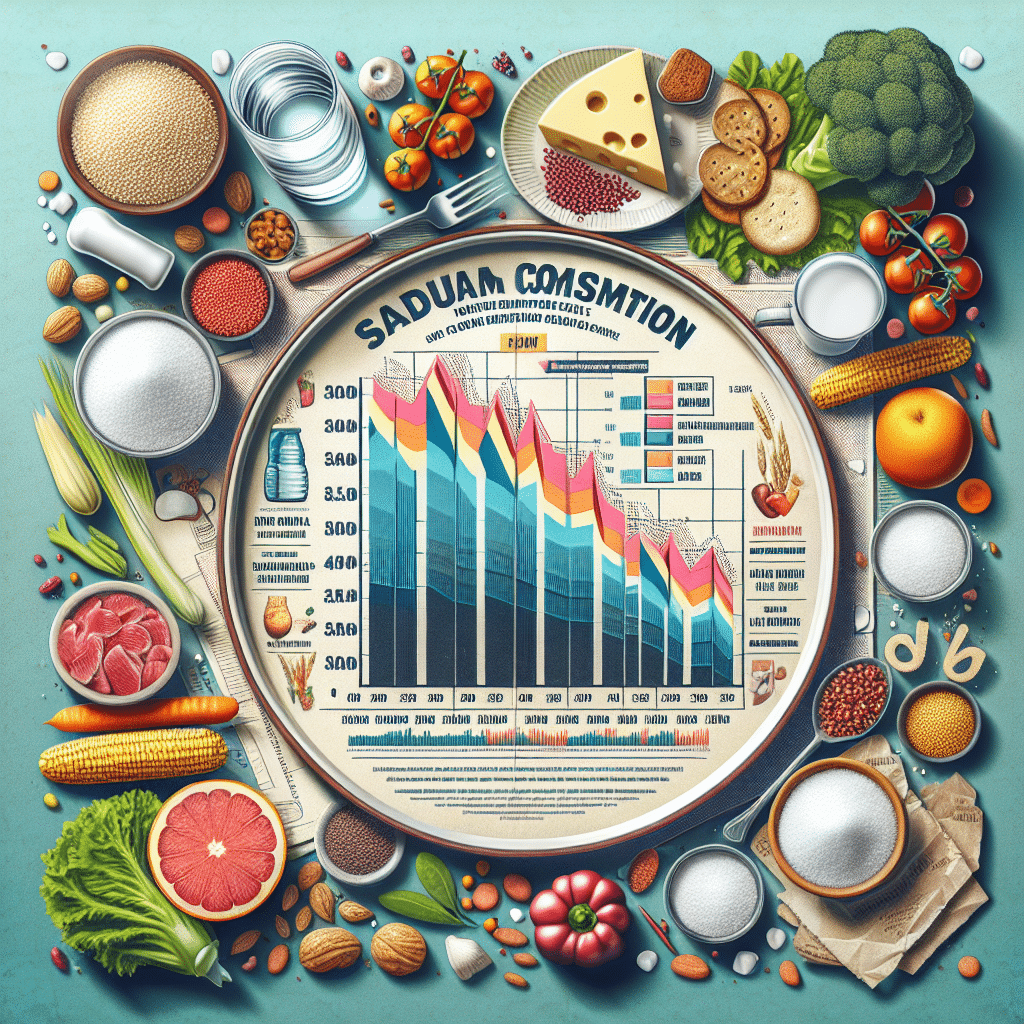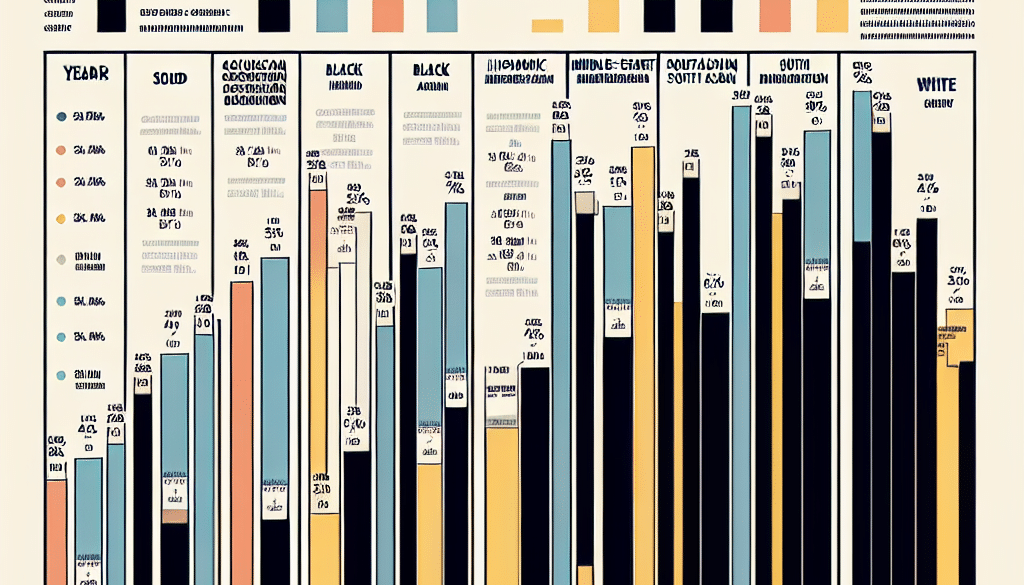Sodium Consumption: Have Consumers Reduced Their Intake?
-
Table of Contents
- Sodium Consumption Trends: Are Consumers Cutting Back?
- The Health Risks of Excessive Sodium Intake
- Public Health Initiatives and Consumer Education
- Consumer Behavior: Are Sodium Intake Levels Decreasing?
- Case Studies: Successes and Challenges in Sodium Reduction
- Industry Response: Reformulation and New Product Offerings
- Conclusion: Key Takeaways on Sodium Consumption Reduction
- ETprotein: A Healthy Choice for Sodium-Conscious Consumers
Sodium Consumption Trends: Are Consumers Cutting Back?

In recent years, there has been a growing awareness of the health risks associated with high sodium intake, including hypertension and cardiovascular diseases. This has led to public health campaigns and initiatives aimed at reducing sodium consumption. But have these efforts been successful? Are consumers actually reducing their sodium intake? This article delves into the current trends and statistics to answer these questions.
The Health Risks of Excessive Sodium Intake
Before examining whether consumers have reduced their sodium intake, it’s important to understand why such a reduction is necessary. Excessive sodium consumption is linked to a number of health issues:
- Hypertension (high blood pressure)
- Heart disease
- Stroke
- Kidney damage
These risks have prompted health organizations worldwide to recommend lower sodium intake levels. The World Health Organization (WHO), for example, recommends less than 2 grams of sodium per day for adults, which equates to about 5 grams of salt.
Public Health Initiatives and Consumer Education
Recognizing the dangers of high sodium intake, public health organizations have launched various initiatives to educate consumers and encourage reduced sodium consumption. These include:
- Nutrition labeling reforms
- Public awareness campaigns
- Reformulation of processed foods to contain less sodium
- Guidelines and regulations for food manufacturers
These efforts aim to make it easier for consumers to make informed choices and to encourage the food industry to offer healthier, lower-sodium options.
Consumer Behavior: Are Sodium Intake Levels Decreasing?
Despite these initiatives, the question remains: are consumers actually reducing their sodium intake? Research and surveys provide a mixed picture:
- Some studies suggest a slight decrease in average sodium consumption in certain populations.
- Consumer awareness of sodium-related health risks has increased, potentially influencing purchasing decisions.
- However, the majority of consumers still exceed the recommended daily intake of sodium.
For instance, a study by the Centers for Disease Control and Prevention (CDC) found that while there is some awareness, most Americans still consume more than 3,400 milligrams of sodium per day, well above the recommended limit.
Case Studies: Successes and Challenges in Sodium Reduction
Several case studies highlight both successes and challenges in reducing sodium consumption:
- In the UK, a voluntary salt reduction program led to a significant decrease in average salt intake from 9.5 grams per day in 2001 to 8 grams per day in 2011.
- In the United States, the National Salt Reduction Initiative (NSRI) has worked with food companies to voluntarily reduce sodium in their products, but progress has been slow and inconsistent.
- Some countries, like Finland and Japan, have seen success through a combination of consumer education, labeling, and industry cooperation.
These case studies show that while progress can be made, it often requires a concerted effort from both public health authorities and the food industry.
Industry Response: Reformulation and New Product Offerings
The food industry has responded to the call for sodium reduction in various ways:
- Many companies have reformulated products to contain less sodium.
- New low-sodium and “no added salt” products have entered the market.
- Some restaurants have started to offer lower-sodium menu options.
While these changes are positive, they are not yet widespread, and many popular products continue to contain high levels of sodium.
Conclusion: Key Takeaways on Sodium Consumption Reduction
In conclusion, while there is evidence of increased consumer awareness and some reduction in sodium intake, there is still a long way to go. Public health initiatives and industry reformulation efforts are crucial, but ultimately, it is up to consumers to make healthier choices. Continued education and improved food labeling are essential to help consumers make informed decisions about their sodium intake.
ETprotein: A Healthy Choice for Sodium-Conscious Consumers
For those looking to maintain a healthy diet with controlled sodium intake, ETprotein offers a range of high-quality protein products that can be a part of a balanced, low-sodium diet. Their organic plant-based proteins are not only low in sodium but also free from common allergens, making them an excellent choice for health-conscious consumers.
ETprotein’s products, such as organic rice protein and pea protein, can be easily incorporated into a variety of recipes, providing a nutritious boost without the added sodium. By choosing ETprotein, consumers can enjoy the benefits of protein-rich foods while keeping their sodium consumption in check.
About ETprotein:
ETprotein, a reputable protein and L-(+)-Ergothioneine (EGT) Chinese factory manufacturer and supplier, is renowned for producing, stocking, exporting, and delivering the highest quality organic bulk vegan proteins and L-(+)-Ergothioneine. They include Organic rice protein, clear rice protein, pea protein, clear pea protein, watermelon seed protein, pumpkin seed protein, sunflower seed protein, mung bean protein, peanut protein, and L-(+)-Ergothioneine EGT Pharmaceutical grade, L-(+)-Ergothioneine EGT food grade, L-(+)-Ergothioneine EGT cosmetic grade, L-(+)-Ergothioneine EGT reference grade and L-(+)-Ergothioneine EGT standard. Their offerings, characterized by a neutral taste, non-GMO, allergen-free attributes, with L-(+)-Ergothioneine purity over 98%, 99%, cater to a diverse range of industries. They serve nutraceutical, pharmaceutical, cosmeceutical, veterinary, as well as food and beverage finished product distributors, traders, and manufacturers across Europe, USA, Canada, Australia, Thailand, Japan, Korea, Brazil, and Chile, among others.
ETprotein specialization includes exporting and delivering tailor-made protein powder and finished nutritional supplements. Their extensive product range covers sectors like Food and Beverage, Sports Nutrition, Weight Management, Dietary Supplements, Health and Wellness Products, and Infant Formula, ensuring comprehensive solutions to meet all your protein needs.
As a trusted company by leading global food and beverage brands and Fortune 500 companies, ETprotein reinforces China’s reputation in the global arena. For more information or to sample their products, please contact them and email sales(at)ETprotein.com today.












